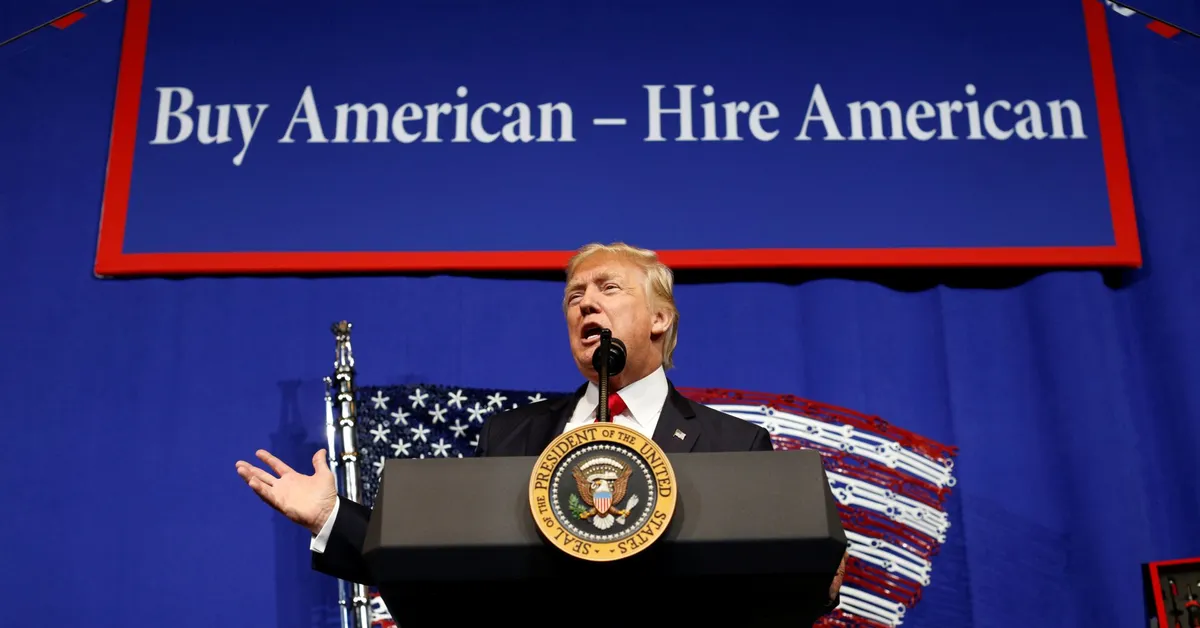
In a dramatic turn of events, H-1B visa holders from India and China found themselves in a state of panic, confusion, and anger as President Donald Trump implemented new visa fees as part of his sweeping immigration crackdown. Tech companies and banks reacted swiftly, sending urgent memos to their employees advising them to abandon their travel plans and return to the United States before the looming deadline of 12:01 a.m. U.S. Eastern Time on Sunday (4:01 a.m. GMT).
The anxiety among workers was palpable as many rushed to get back home, fearing that they would be barred from re-entering the country once the new rules were enforced. At San Francisco airport, several Indian nationals recounted their experiences of cutting vacations short. One engineer at a prominent tech company shared his predicament, stating, “It is a situation where we had to choose between family and staying here.” His wife, who was set to fly from San Francisco to Dubai on Emirates, had her flight delayed for over three hours as others on board demanded to deplane after receiving alarming news.
Despite the confusion, a White House official later clarified that the new order was applicable only to new applicants and did not impact current visa holders or those seeking renewals. However, the initial announcement had already triggered a wave of anxiety across Silicon Valley.
Fearing the worst, many H-1B visa holders at airports around the world chose to return to the U.S. immediately. A woman recounting her experience on the popular Chinese social media platform Rednote described the rush to return as reminiscent of the early days of the COVID-19 pandemic, when travelers were forced to scramble back home before entry bans took effect. “My feelings are a mix of disappointment, sadness, and frustration,” she expressed, after having to abandon a planned trip to Paris.
Another engineer described the surreal nature of the situation, noting that his wife, also an H-1B visa holder, decided to travel to India to care for her ailing mother. He lamented, “It’s quite tragic. We have built a life here.”
Since taking office, Trump has enacted a series of measures aimed at reshaping the immigration landscape, particularly targeting the H-1B visa program. Critics argue that such actions reflect a protectionist agenda that threatens the competitive edge of American companies by limiting access to essential foreign talent. Proponents, however, assert that the program is crucial for filling skills gaps in the tech industry.
In the aftermath of Trump's proclamation, social media was inundated with discussions about the implications of the new fees and the overall impact on the U.S. as a desirable workplace. One anonymous user expressed their frustration, comparing their life as an H-1B visa holder to that of a slave.
The details regarding the new visa fees further fueled the confusion. Initial reports indicated that companies would need to pay $100,000 annually for H-1B worker visas. However, White House spokesperson Karoline Leavitt later clarified that this was a one-time fee applicable to each petition, rather than an ongoing annual cost. This clarification provided some relief but did little to alleviate the overall tension surrounding the new regulations.
As the situation continues to unfold, H-1B visa holders and their employers are left grappling with the uncertainty of an evolving immigration policy landscape. “Everything is changing in an instant,” one engineer noted, highlighting the precarious position many find themselves in amid these regulatory shifts.
This recent turn of events serves as a stark reminder of the challenges faced by international workers in the U.S., raising questions about the future of the H-1B visa program and its role in the American workforce.